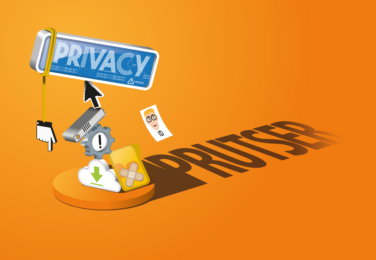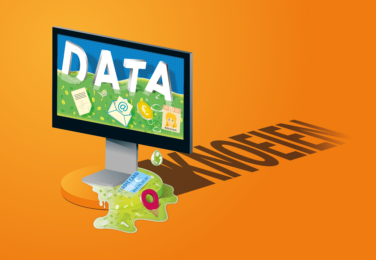Public wifi
Without you realising it, your account has been hacked! Simply because you logged onto a free public network. How were you to know it was a ‘spy’ Wi-Fi? Now other Wi-Fi users can easily see what you're doing, which websites you log into and which keys you hit.
Be aware of spy Wi-Fi.
Hackers mimic a network
When you log onto a public Wi-Fi network, hackers can misuse the data on your phone or computer. Using special equipment, they create a network with a network name known to you (for example, "Wifi on the train" from the NS). When you log on to this, you end up on the hacker's network, instead of the network you thought you were using. A hacker can also fake privacy-sensitive websites, such as those of DigiD or your bank. Then you think you are visiting these websites, but you are actually on a hacker's website.
…and steal your data
Data on your PC or cell phone can be read after logging into the hacker's network. This could include log-in data, for example. According to the Security Monitor (2016) by Statistics Netherlands, in 2016 more than 1 in 10 Dutch people were victims of hacking, ranging from breaking into a computer or cell phone to logging into email or Facebook accounts.
Are you aware of listening-in WiFi?
Our public wifi tips
- Use your mobile wifi hotspot on your phone.
- Only connect to wireless networks with sufficient encryption (WPA-2). Often your device will indicate if a network is not sufficiently encrypted.
- Check the name of a network before connecting.
- Use a VPN connection. With a VPN, your Internet traffic cannot be eavesdropped on.
- Disable automatic search for Wi-Fi networks.
- Don't use public Wi-Fi to transmit sensitive data or personal data over it. Internet banking, logging in with DigiD, viewing medical or health data and the like are done on a trusted network.



